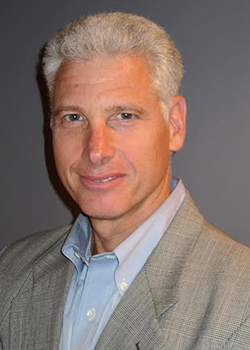Attorney finds a "new spring in his step" as a leadership coach

As a troubleshooting corporate lawyer, Jeff Hurwitz always knew that helping people was his natural calling. And now, with insights from the Leadership Coaching for Organizational Performance certification program, he’s channeling renewed energy into a new career as an executive coach.
“A good lawyer has a servant’s heart. They do it in different ways, but they have the same goals as a coach: understanding how to help people solve problems,” said Hurwitz, who has added Leadership Coaching to the services offered by his boutique consulting firm, CoreChoice.
The path from New Jersey-based attorney to executive coach was not linear, however. The open-enrollment Leadership Coaching for Organizational Performance class, which begins at Rutgers on June 16, 2020, helped him realize that his natural problem-solving reflex, which worked so well for him as General Counsel for D&B (Dun & Bradstreet) and Covance, could actually conspire against his mission as an executive coach.
Finding “Aha” Moments in Class
“As you learn the methodology of coaching, you have those “aha” moments,” he said. “Coaching clients often come with the mindset that ‘you’re the expert; give me a solution.’” As a lawyer, that’s exactly what he would do, he said. He would listen carefully, then analyze the problems and constraints before outlining a path forward.
As a leadership coach, however, he now listens with an entirely different goal – to help clients find solutions themselves. “As a coach, my role is to help them understand the issues that are standing in the way of their improved performance,” he said. “A good coach, a genuine one, helps you achieve the breakthrough. They help you understand your problems at an intellectual level – and, more importantly, at an emotional level. They help you find the insight to climb the hill,” he said.
Focus on Business Performance and Adult Education
Rutgers maintains a strong focus on business performance in the Leadership Coaching program, said Dr. Richard J. Novak, Vice President of Continuing Studies and Distance Learning at Rutgers. “We’ve combined the best elements of adult education with executive-level consulting in the field of business coaching.” In the first of five modules, the program examines four different levels of active listening and introduces strategies for "powerful" questions that can elicit and uncover values that can drive decision-making.
Rutgers has joined forces with Hedrick & Struggles to deliver the program, through a combination of interactive case studies and one-on-one coaching sessions. Hurwitz gives high marks to the instructors and the program’s use of active, Socratic-method problem-solving that draws heavily upon the student’s experience and insights.
Kaveh Naficy, a Philosophy IB founding partner who oversees its executive coaching practice and a lead instructor in the program, said, “We’re delighted to partner with Rutgers University to help high performers find new insights as Leadership Coaches," Naficy said. "We're excited to help leaders and organizations develop the critical executive coaching skills needed to drive greater results.”
Earning ICF Certification
Graduates of program, which includes classroom-based learning, interactive teleclasses, practice coaching sessions, and a final exam, gain a professional certificate and meet the education requirements needed to apply for coaching certification through the International Coach Federation (ICF). In particular, participants find tremendous value in the feedback they receive as part of their practice coaching sessions
“They get you coaching early on; that was a central theme. I was in a very experienced group with a number of senior HR (Human Resource) managers. The instructors earned our trust. Moreover, this is a co-designed program that relies on the input and experience of the students,” Hurwitz said.
The program attracts a variety of students. Drawn from New York, New Jersey, Pennsylvania and Connecticut, many are corporate managers who will apply Leadership coaching skills within their organizations, while others are individuals who want to offer Leadership coaching on a full- or part-time consulting basis.
Coming Full Circle to Impact Lives
Hurwitz falls into that second group. Throughout his career, he always enjoyed the diversity of problems he faced as an attorney, but he is finding himself renewed by his coaching role. “I wanted to come full circle and be as impactful as I can. I get a lot of energy working with people. It puts more of a spring in my step and is a wonderful complement to the leadership development training I provide through my symposiums,” he said.
For more information about ICF Certification or the program at Rutgers, please visit Professional Certificate in Leadership Coaching for Organizational Performance Program website or call Jim Morris at 732-932-6998 x651.